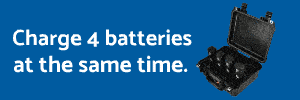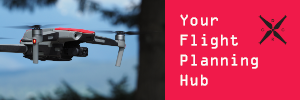I know that there are other threads, but most of them seem like a year old.
On Friday, I'm flying to Brazil with my P3S, and am just wondering what to expect with TSA. Normally I wouldn't bring something like this there, but the opportunity to take amazing aerial footage is worth the risk. I have a hard shell backpack similar to the one DJI makes which would be my carry on.
Question- do I really have to fully discharge both batteries like it says in the DJI manual?
Should I keep the batteries in the little slots in the backpack or keep them in a separate bag which I carry on in the plane.
On Friday, I'm flying to Brazil with my P3S, and am just wondering what to expect with TSA. Normally I wouldn't bring something like this there, but the opportunity to take amazing aerial footage is worth the risk. I have a hard shell backpack similar to the one DJI makes which would be my carry on.
Question- do I really have to fully discharge both batteries like it says in the DJI manual?
Should I keep the batteries in the little slots in the backpack or keep them in a separate bag which I carry on in the plane.







